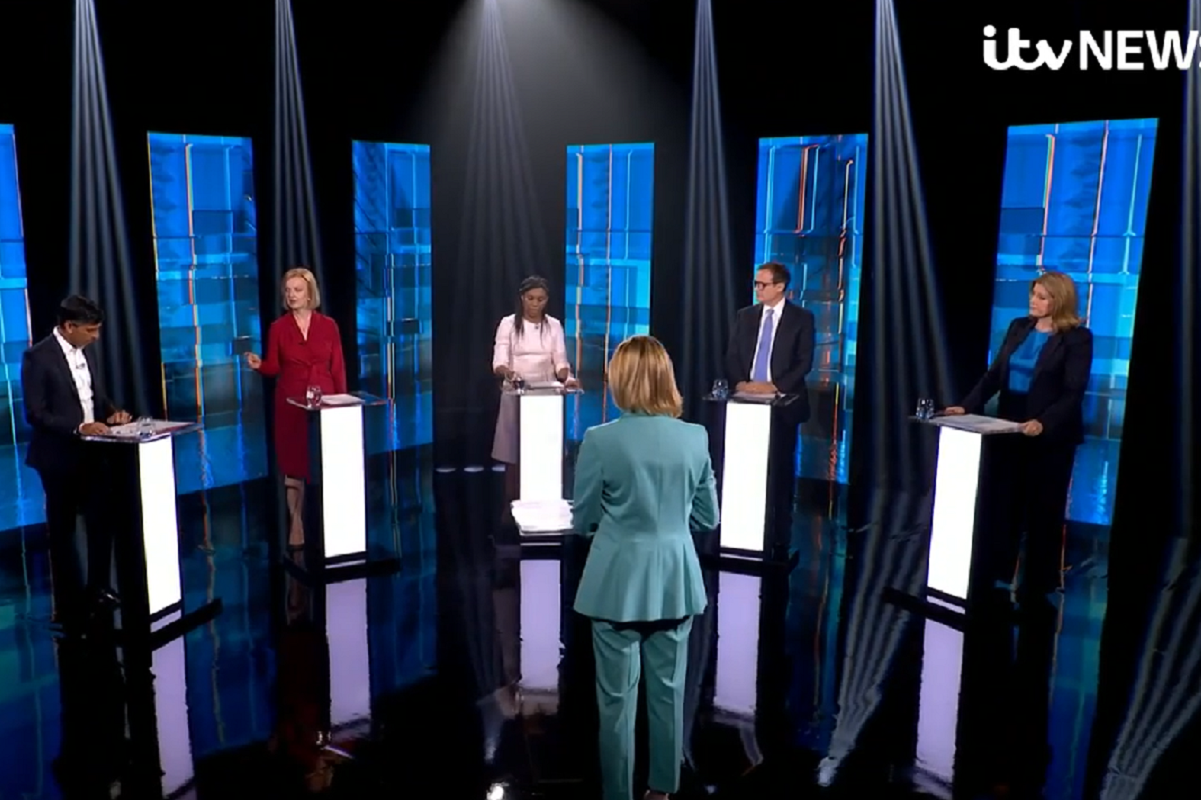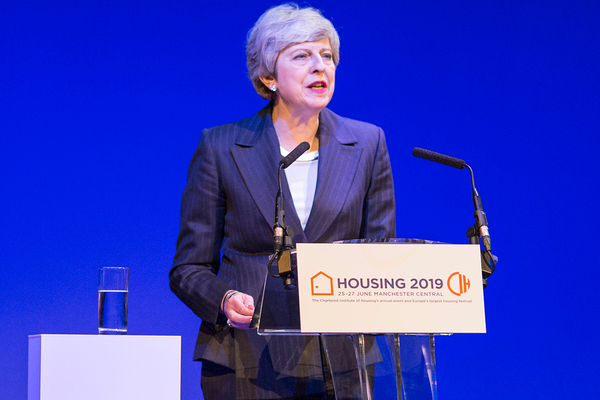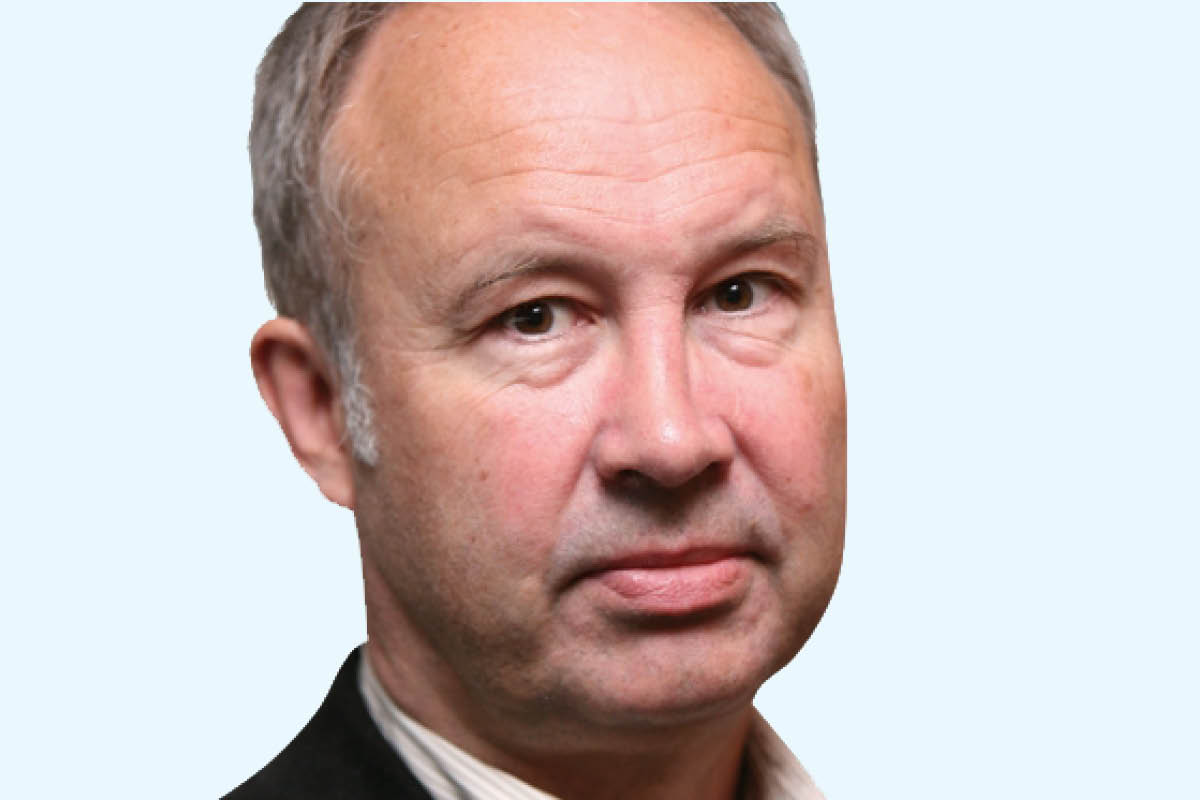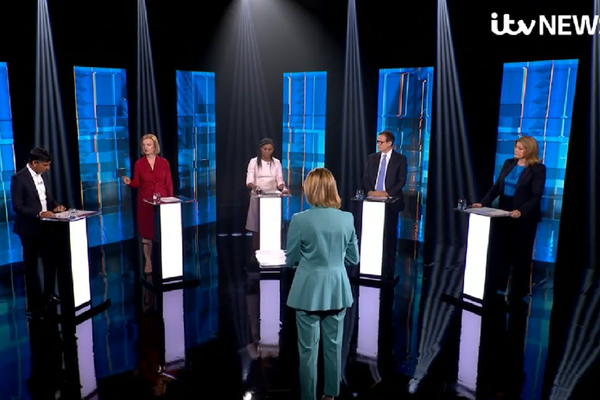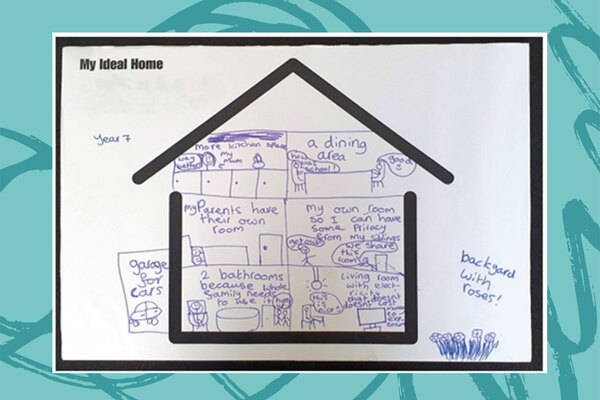You are viewing 1 of your 1 free articles

Jules Birch is an award-winning blogger who writes exclusive articles for Inside Housing
The housing policy debate in the Tory leadership race has been beyond depressing
Housing policy has not featured prominently in a leadership debate dominated by views about ‘woke’ politics and tax cuts. But the glimmers of insight we have had of candidates’ views are depressing, writes Jules Birch
This is a Conservative leadership race in which the number of toilets we should have has often seemed a bigger issue than the number of homes we need.
Even allowing for the fact that the candidates have to appeal to electorates made up of Tory MPs and older Conservative members who appreciate anti-wokery, the level of debate in the race to be the next prime minister as well as party leader has been beyond depressing.
The only candidate who made housing explicitly part of his pitch was Sajid Javid as he called for “a massive programme of garden villages and new towns” and incentives for longer-term tenancies – but he was one of the first to be eliminated.
The debate has otherwise been dominated by tax cuts and the general message is that whoever wins will cut public spending to create space for them.
Calls by multiple candidates to reverse the increase in National Insurance make the prospects of meaningful reform of social care look even more remote.
“Commonsense” calls for people to be given back “their own money” ignore attempts up to now to target cost-of-living support on the poorest.
And you have to wonder whether benefits will really be uprated in line with inflation next year and whether the Treasury will allow a potentially double-digit increase in social rents.
The levelling-up agenda looks to be on shaky ground, with Liz Truss, for example, calling for “levelling up in a Conservative way”, which appears to mean tax cuts for entrepreneurs rather than a rebalancing of public spending.
The 2050 net zero target is only opposed by one of the remaining five candidates (Kemi Badenoch) but none of them have shown much enthusiasm for a strategy to achieve it.
On the opening weekend of the leadership race, the Sunday Telegraph devoted tens of thousands of words to the candidates and what they plan to do.
The only mention of housing came in a piece about where Boris Johnson plans to live next and which of his two sets of tenants should be evicted to make way for him.
In only one of the leadership debates so far have the candidates been asked directly about their plans. Paul Goodman of Conservative Home (watch from around 48 minutes in, below) asked them how they would propose to fix the housing crisis and help more people into homeownership.
Tom Tugendhat said we really need to ask what a Conservative solution is: “A Labour solution would concrete over the whole country and leave us with socialist homes that are owned by the state and we can rent on a temporary basis.”
This is an utterly depressing view of social housing from supposedly the most progressive candidate in the race and he had lots of guff about restoring trust, believing in Britain and a clean start.
His plan for growth would be “built on things like housing” because “giving people a start in life, giving people the opportunity to own their own home is fundamentally Conservative; Margaret Thatcher did it and we can do it”.
Penny Mordaunt appealed directly to grassroots Tories with her answer that “the thing that doesn’t help get houses built is targets”.
“The only mention of housing came in a piece about where Boris Johnson plans to live next and which of his two sets of tenants should be evicted to make way for him”
She identified factors stopping development such as competition between developers and landbanking, as well as skills and capacity within planning departments, and cited new towns and brownfield land as areas for action.
And she had a niche solution of her own: addressing Valuation Office Agency rebanding policies that she claims block shared homes for young professionals.
“Let 100 flowers bloom,” she said, promising a taskforce in government “that relentlessly focuses on increasing the number of houses that get built”.
Ms Badenoch cited her ministerial experience and perhaps showed the influence of her ex-boss and one of her most prominent supporters (Michael Gove) as she raised problems in getting communities to accept new homes because of the way they are delivered.
“It scares people when we talk about 300,000 new homes because they think they are coming next door to them,” she said as she identified issues with the “developer oligopoly” that builds homes people don’t want to live in, and problems with leasehold.
Quantitative easing had helped to create an asset bubble in which “people feel that housing is the only safe place to put their money and we need to change that so that homes are not just investments for people who already have homes”. She cited the impact of buy-to-let and second homes in coastal areas.
Ms Truss said it was very worrying that people are getting older and older before they can afford their first home and argued that this was a problem for the country and an electoral problem for the Conservatives.
However, she saw a problem with “one size fits all” approaches and argued that we need to “build up more” in cities and allow incremental expansion, but not enormous targets, in rural areas: “We won’t have successful planning policy if we don’t have the support of all of the Conservative Party. I don’t want another planning war like we’ve had before. It’s very important that we have policies that have local consent.”
Finally came the frontrunner, ex-chancellor Rishi Sunak. “We’re all Conservatives and we believe in homeownership,” he said, but getting consent for the number of homes we need is a challenge.
“Liz Truss said it was very worrying that people are getting older and older before they can afford their first home and argued that this was a problem for the country and an electoral problem for the Conservatives”
He cited brownfield land, urban densification and modular building as examples of the action needed, along with getting small and medium-sized builders back into the market and stopping landbanking by big developers.
But he had an ominous message about the Affordable Homes Programme. “We also have a very big social housing budget that the government supports,” he said. “One of the things Robert Jenrick did very well was start to shift that budget in the direction of ownership.”
He also praised measures to get developers to deliver affordable housing obligations as homes to own as well as rent: “That’s a philosophical difference we have with the Labour Party because we believe in supporting homeownership, not just keeping people in rented social accommodation. Lots of people don’t like that but we need to make sure we stick up for that because ownership is something that as a value is really important to us as a party.”
Housing did not feature in the Channel 4 and ITV debates that followed, but two of the candidates elaborated on their plans in the Sunday Telegraph yesterday.
Ms Badenoch raised the need to control immigration: “People – rightly – recognise that building more homes while doing nothing to bring immigration down is like running up the down escalator.
“We’ll never get to where we need to with that approach, and we won’t persuade people to accept more homes if it is being done due to immigration failures. If we can bring immigration down to a sustainable level, we can then protect green spaces for our children and precious agricultural land.”
“Going back to the future is tricky at the best of times, but reaching back to an invented past reflects the level of the debate on housing”
And Ms Truss doubled down on her message as she declared that “I’ll put an end to ‘Stalinist’ housing targets” and rely instead on tax cuts and deregulation to give firms incentives to build new homes.
Now, if you think that sounds vaguely familiar, that’s because it is. One of the Conservative-led coalition government’s first acts was to instruct local councils to tear up Labour’s regional spatial strategies, or what Eric Pickles called “failed Soviet tractor-style top-down planning targets”.
In their place would come what Grant Shapps called the “powerful new incentive” of the New Homes Bonus, the National Planning Policy Framework and, eventually, Help to Buy.
Going back to the future is tricky at the best of times, but reaching back to an invented past reflects the level of the debate on housing.
This is a party that has been in power for 12 years and one of the leading contenders to become prime minister is attacking its own policies as ‘Stalinist’.
Jules Birch, columnist, Inside Housing
Sign up for our daily newsletter
Already have an account? Click here to manage your newsletters
